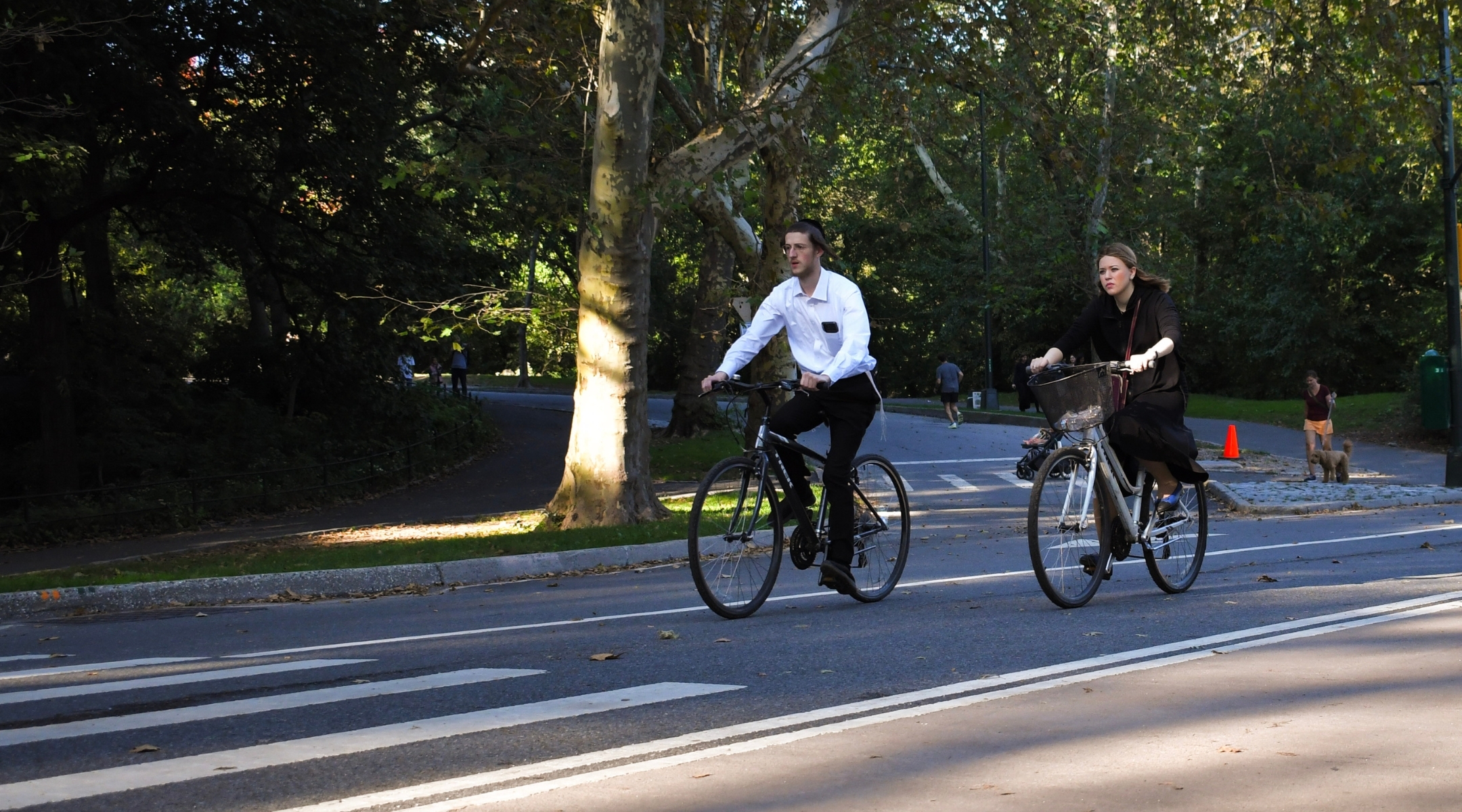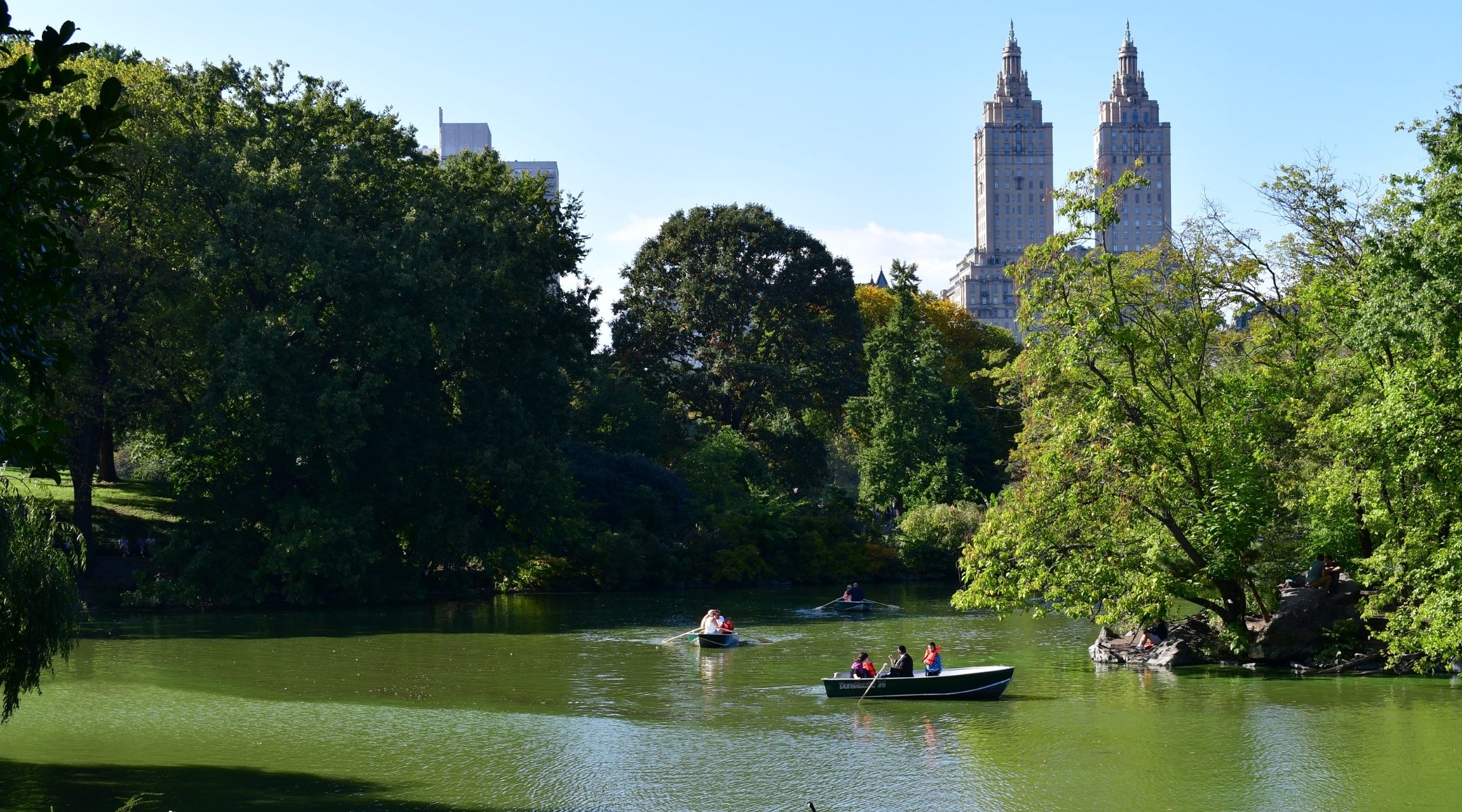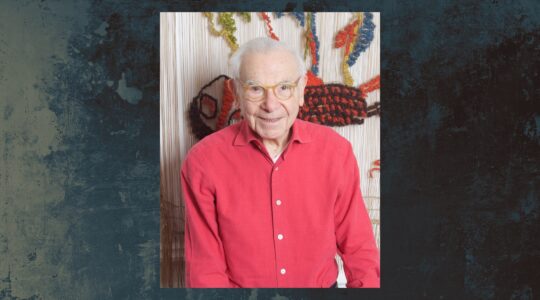(New York Jewish Week) — On Monday, the Behfar family of Midwood hosted friends in their backyard, went out for ice cream and met up with friends again, this time for a barbecue and cocktails. On Tuesday, the family of six ventured to Staten Island, where they visited an arcade, a Lego store, a shooting range and a nearby Trader Joe’s.
The rest of the week will bring visits to a theme park and a New Jersey mall.
It’s an ambitious staycation itinerary for any family, and for the Behfars, it’s imbued with religious significance. The fall festival of Sukkot, which began on Friday evening, contains five intermediate days, called “Chol Hamoed” in Hebrew, during which Jewish religious prohibitions on work during the holiday are relaxed but when many Orthodox day schools are on vacation.
For the Behfar family and many others across the five boroughs and beyond, that means a week of family time in honor of the holiday. To make it manageable, parents Karen and Aharon Behfar have set at least one ground rule for their four sons. “The rule is everyone has to go together,” Karen Behfar said. “You can’t have, let’s say, my two older boys saying, ‘I don’t want to go to that trip.’”
This year, the five days of Chol Hamoed began Monday and end Friday — time many Orthodox families spend trekking around New York City, frequenting everything from well-trodden cultural institutions like the American Museum of Natural History to amusement parks and other attractions farther afield.
And the city and its environs change for them. To accommodate the increased numbers of Orthodox vacationers, the city’s ferry schedule changes, a mall in New Jersey offers private, gender-segregated swimming, and concerts of religious Jewish music are staged in Coney Island, Crown Heights and Newark.
“As a father, my wife and I need to spend time [on] Chol Hamoed figuring out what to do with the kids,” Abraham Bree, a marketing executive and father of six, told the Jewish Telegraphic Agency.
“My 13-year-old wants more fun, exciting adventure stuff. My [twin] 2-year-olds don’t want to go on roller coasters,” he added. “Obviously you wouldn’t want to go on a Chol Hamoed trip where the oldest kid is moping because it’s a bunch of Chuck E. Cheese things.”

A young couple cycles through Central Park on the first day of Chol Hamoed Sukkot 2023. (Jackie Hajdenberg)
The holiday’s religious restrictions make that planning process even harder. Jewish law mandates that all meals be eaten in a sukkah, the temporary huts built for the weeklong holiday that recall the ancient Israelites’ sojourn in the desert and emphasize the need for divine protection. Orthodox families also prefer attractions where certified-kosher food is on offer. (Passover also has four intermediate days in New York that generally coincide with spring break at the city’s public schools, and when strict religious restrictions also apply.)
Those requirements have spawned several online guides directing people to attractions that offer sukkahs and kosher eateries. Many of those places are Jewish-themed, but some, like American Dream Mall in New Jersey, is built for a broader audience but caters to Orthodox Jews — with kosher offerings in the food court and more than one sukkah. The mall also features days when its huge water park is open exclusively to men or women — a policy that accords with Orthodox Judaism’s restrictions on immodest dress.
“Some families are very, very planned out,” Karen Behfar said. “And sometimes we just like to go in the car and drive and find different places.”
To help families structure their week, Bree created an artificial intelligence-powered website called CanWeGoNow.com, which generates suggestions for family-friendly activities by zip code. The website is named after the refrain he heard from his children upon returning from synagogue each morning during the holiday’s intermediate days. He said 20,000 people had already used the website this week, as opposed to hundreds on a typical week.
But the first model of the website presented a problem for its Orthodox Jewish clientele — it suggested families visit St. Patrick’s Cathedral, near Rockefeller Center.
“Now, if you’re Jewish and it’s Chol Hamoed, it shouldn’t be suggesting churches,” he said. “We had to put in parameters that would eliminate any places of other religions, we had to put in parameters that would eliminate anything more, adult-themed, shall we say — because, again, trying to be family-friendly in the spirit of the holiday.”
One popular destination for Orthodox staycationers is Governor’s Island, which is evident from the city’s ferry schedule, which has added routes to the island from destinations in Brooklyn. The ferry’s website homepage advertised a special schedule this week “to accommodate higher ridership during the Sukkot holiday.”
Often, families will choose to entertain at home, hosting people in their sukkah or visiting their friends’. Aharon Behfar, who serves as the rabbi of a Sephardic synagogue, teaches Torah classes in his family’s sukkah, and will hire musicians to entertain the guests.
“We realized it’s enjoyable just to find things to do just really around the house and just enjoy each other as opposed to going outside,” said Karen Behfar. “That realization was awesome for me, for the kids.”
And as Chol Hamoed began, others were still figuring their itineraries out. Alisa and David Lasky and their three children, from North Woodmere, Long Island, spent the first day of Chol Hamoed rowing boats in Central Park.
“We crashed a lot,” Alisa Lasky said Monday. None of them had ever rowed in the park before, and the family was glad the weather was good. She said they had a lot of fun.
“We might go to Six Flags tomorrow,” Lasky said. “Not everyone agrees. We might do ax throwing, or Top Golf.”
The New York Jewish Week brings you the stories behind the headlines, keeping you connected to Jewish life in New York. Help sustain the reporting you trust by donating today.





